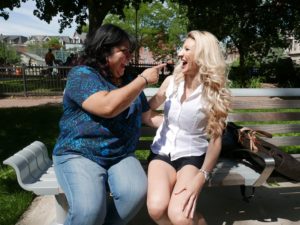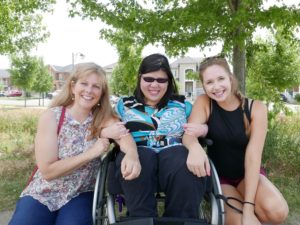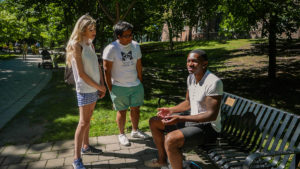Things didn’t start well. Our assignment was to talk to strangers about their experiences arranging, providing and receiving care. But when our team of student researchers had gone out for the first time, we hadn’t found the courage to talk to a single person. We had already interviewed friends and acquaintances, and these interviews had gone well. But it’s hard enough to approach strangers for any reason, let alone to ask about something as personal as care.
A more experienced researcher was along this time to coach us. She showed us different ways to approach people, how to listen in ways that help people to open up, and how to make the signing of waivers go smoothly. Most of all, she encouraged us to just do it.
We walked through a busy park in downtown Toronto, looking for people to approach. A couple said they didn’t want to be disturbed. A man, walking slowly, said he was in too much of a rush. After our coach gave us a little talk about coping with rejection, we tried once more. A woman then agreed to talk, telling us how her career choices had been shaped by the desire to care for people, and how her father’s worsening health affected her family. After this, our confidence grew. The stories seemed to tumble out of people, one after another. We were amazed by the centrality of care in people’s lives – and by their willingness to tell us about it.
We were talking randomly with people of all ages and stations, and it seemed that everyone had an important care story to tell. As we reflected on that day, something important came into focus.
What had been holding us back? Our inexperience and shyness, yes. But also this: the topic of care itself. The time, work and worry devoted to care are hidden in our society – often shared only with the closest of friends. To talk about issues related to care is to open up about our needs and vulnerabilities. This was what had made us afraid to talk about it with strangers. And yet our care needs and concerns are central to our well-being, and connect us all deeply.
The way to successfully interview strangers in Queen’s Park? The same way we are going to improve the way that care is understood and arranged and delivered in our society. We need to get over our reluctance to talk and tell our stories.



